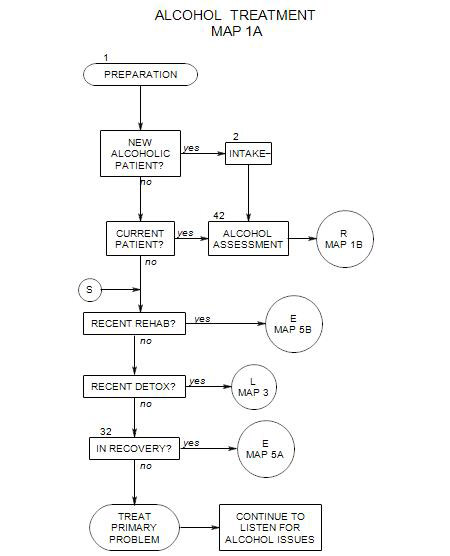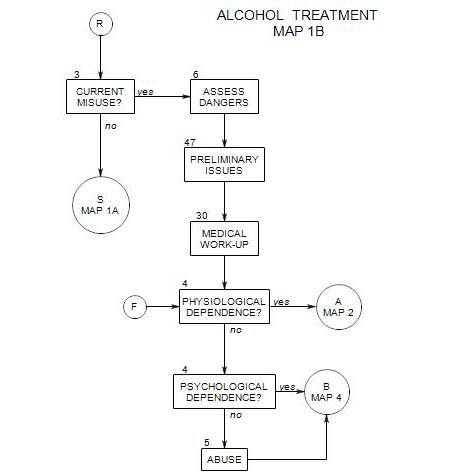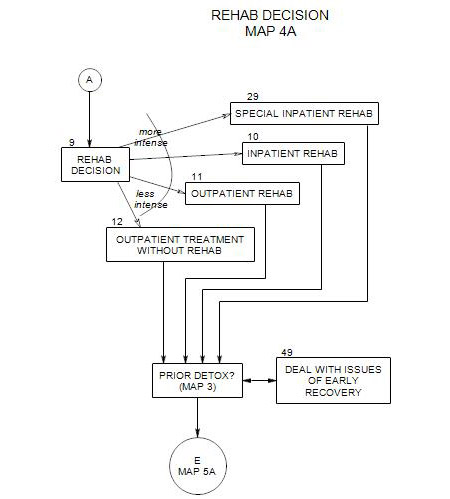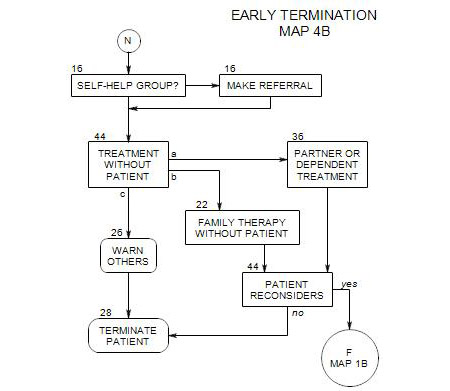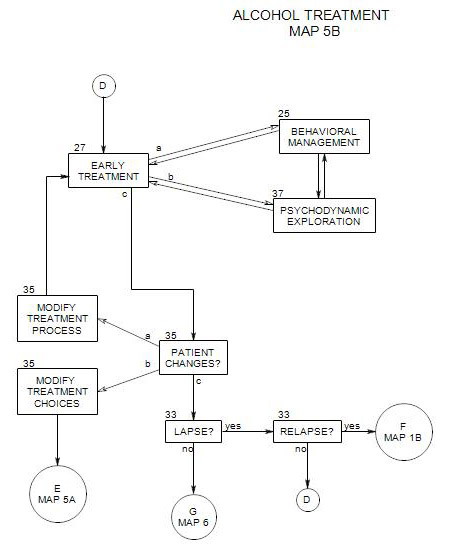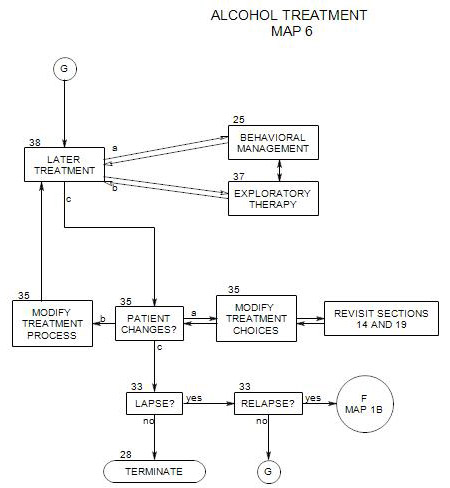- This section follows Level of Care Decision, Section 9 on either Map 4 if the patient is psychologically dependent or abusing, or on Map 3 if the patient has recently had detoxification for physiological dependence.
29a. Inpatient Programs
A dual diagnosis program is designed to treat alcohol misuse and other psychological disorders simultaneously. Ideally, the total milieu is supportive of patients with multiple issues, and staff are trained to recognize and manage patients with a wide range of diagnoses. Inpatient programs are designed to deal with patients who require a stable environment for rehabilitation or who need fulltime management because of a psychological disorder.
If you have information about your patient’s background or treatment needs that you think can be helpful, you should contact the intake staff as soon as possible. Once your patient has signed a release, you can pass your information on to them.
You can also let the staff know that the patient was in treatment with you, that you are prepared to stay in touch with him/her, and that you are prepared to take him/her back into outpatient treatment on discharge from the program.
29b. Outpatient Follow-up
The type of follow-up that a person with both alcohol and psychological issues needs depends both on the risk of relapse and the severity of the person’s mental illness.
A patient with a severe mental illness is typically not a good candidate for private practice treatment because of his/her difficulties in coping with everyday life. Such a person would be better referred to a specialized outpatient treatment facility, where additional services are immediately available. If you do take on such a person, you may need to find additional resources somewhere outside your practice.
A patient with a milder disorder or one that can be managed with medication and can cope effectively with daily life in the outside world may do well in a private practice psychotherapy setting. Even so, careful attention to adjunctive treatments is often an essential part of the work.
